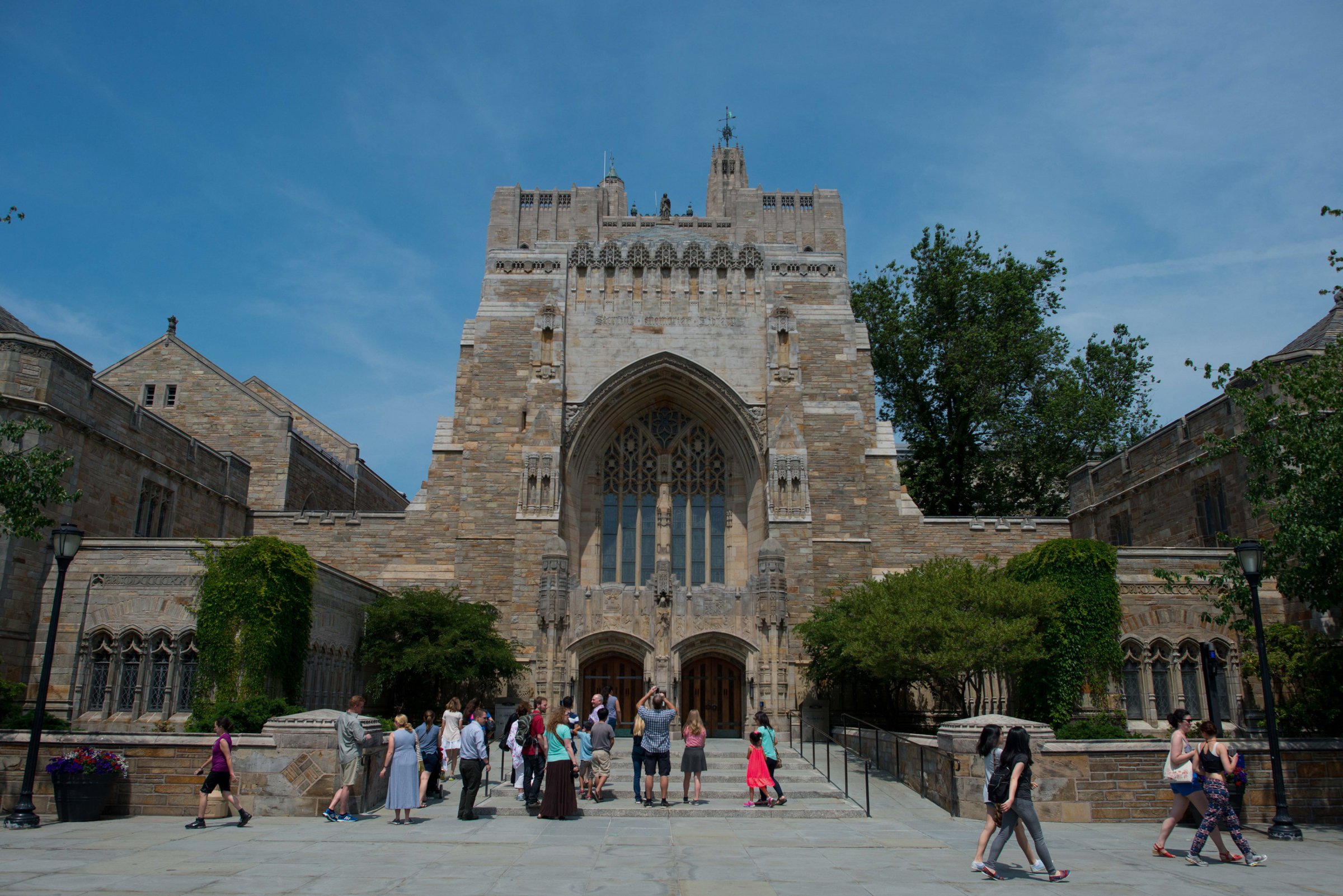
This week, Yale University committed to creating a working group on race that will consider, among other topics, changing the name of one of its residential colleges, named for slavery advocate and Yale alumnus, John C. Calhoun.
This comes after a year of campus unrest during which Yale said it would not change the name. It also comes after a summer in which Corey Menafee, an African American man who was working in Yale’s Calhoun dining hall, purposely broke a stained glass window depicting two African American slaves collecting cotton.
Menafee apologized, resigned and was charged in court. Yale then dropped all charges and Yale offered Menafee his job back. And now Yale is creating a working group to assess and improve discussions of race.
While this back and forth is frustrating, it seems to be heading in the right direction. And as I look around my own living room, it reminds me, as a single mother and pediatrician, of the complexity of race discussions with my teenagers, who are trying to figure out their place in our multi-cultural world.
My deceased husband was born in Minneapolis, and his family is Hindu from India. My family is Ashkenazi Jewish from Boston. In my home this summer—in our mixed race, mixed religion, single-parent family—we are planning family gatherings for the Hindu holiday of Rahki and Jewish holiday of Rosh Hashana, my children are somewhere between childhood and adulthood, our skin colors vary and, like most of America when discussing race this year, we are between a rock and a hard place.
When my 15-year old daughter came home from 9th grade and crinkled her face as she told me studying American history is about memorizing the names of old, white men, it pained me. I love history and believe in its power to help us understand our world today.
But what I said to her was: “What if instead of those names, they were names like Vivek?”
“That is so racist, mom. Don’t say that.”
“What if the names were like Shmuel?”
“You can’t say that either,” she said.
When I offered an Indian-sounding name, I was trying to appeal to my daughter’s well-developed sense of her father’s heritage. When I switched to a Jewish-sounding name, I was leaning on mine. Neither worked for her.
“It’s complicated, mom. You don’t understand.”
She’s right. I have no idea what it feels like to walk around this world with brown skin. I have a very good idea what it feels like to watch someone you love walk around with it—whether getting stopped more often in an airport (her dad) or being told she could not play on a playground (her). But I know that no matter how much those events hurt me, I am still not walking in those shoes.
I have learned that, even in my own home, when I tried to engage in a conversation about race, there’s a gap in empathy. It is in these moments—when I don’t have my dead husband to bounce ideas around, a grown-up person of color in our home who loves me enough to recognize that I am trying to connect to our daughter—I am reminded of how, if discussions of race and identity are hard in a loving family, how relatively impossible they are to have in public places.
Of course, racism is never OK, and it is especially not OK in an environment designed for learning. As a pediatrician, I know how students learn best: brain science research has taught us that adolescent brains develop and learn best when in a secure, supportive environment. If an adolescent is living in a stressful situation—such as that brought on by not feeling accepted for their skin color or identity—their brain is focused on managing the stress and this limits their ability to learn.
The Yale events are happening in one university in one medium-sized city in the midst of a summer of race-related violence across the United States. But these events will be vital to the national discussion—and healing—if Yale can model acceptance, decrease stress and increase learning to not only their students, but to those working on and living near their campus.
I cannot help but reflect that my oldest daughter, born in 2000, will go to college in a few short years. A few more years of trying to maintain a supportive environment in our home until I pass that responsibility off to some college somewhere. Wouldn’t it be great if by the time the first babies born in the 21st century are moving to college campuses, we can say that this year’s unrest led to real changes on campuses and ultimately the world?
More Must-Reads from TIME
- Donald Trump Is TIME's 2024 Person of the Year
- Why We Chose Trump as Person of the Year
- Is Intermittent Fasting Good or Bad for You?
- The 100 Must-Read Books of 2024
- The 20 Best Christmas TV Episodes
- Column: If Optimism Feels Ridiculous Now, Try Hope
- The Future of Climate Action Is Trade Policy
- Merle Bombardieri Is Helping People Make the Baby Decision
Contact us at letters@time.com